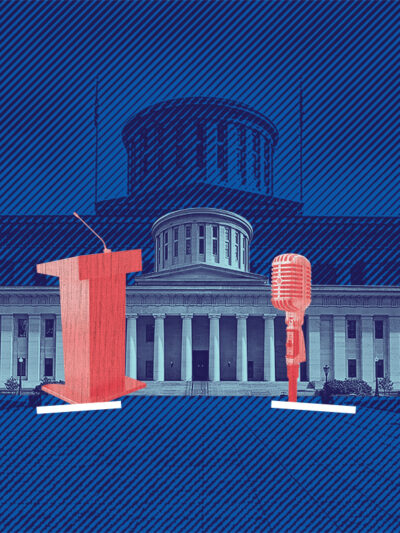News & Commentary
Nov 20, 2024
Ohio’s Problematic Private Prisons: A Primer
Should some people profit off others’ misfortune? At the ACLU of Ohio, we believe the answer is a resounding no. Sadly, we know profit comes into play at many levels of our criminal legal system, but the most notable is within the prison industry itself.
By Jocelyn Rosnick

Nov 18, 2024
House Bill 473 - Opponent Testimony
The ACLU of Ohio urges the committee to reject HB 473 because of its failure to adequately address crucial and serious mass surveillance concerns.
By Gary Daniels

Nov 18, 2024
Senate Bill 237 - Proponent Testimony
It is long past time for Ohio to join the majority of states with protections against Strategic Lawsuits Against Public Participation (SLAPPs) and further protect free speech.
By Gary Daniels

Nov 18, 2024
Senate Bill 293 – Opponent Testimony
The ACLU of Ohio encourages the committee’s rejection of Senate Bill 293 in favor of current law which allows local school districts to decide themselves whether or not to accommodate religious release time programs.
By Gary Daniels

Nov 13, 2024
Breaking Down the Governor's Juvenile Justice Working Group
In November 2023, Governor Mike DeWine announced the formation of a Juvenile Justice Working group to right the ship and set Ohio’s youth justice system back on a path towards progress.
By Pat Gleydura

Nov 07, 2024
Firewall for Freedom: We are Ready to Fight
As we enter a second Trump Administration and the path to protecting the civil rights and liberties of all Americans, one thing is crystal clear: We have a plan.
By Sheila Smith

Oct 28, 2024
Ohio Can Positively Improve our Youth Justice Systems. It’s time to Adopt the Existing Playbooks.
The goal of all youth legal systems is to ensure youth are given a developmentally appropriate chance to right their wrongs and move into adulthood on a more positive track.
By Carly Quenneville

Stay Informed
Sign up to be the first to hear about how to take action.
By completing this form, I agree to receive occasional emails per the terms of the ACLU’s privacy statement.
By completing this form, I agree to receive occasional emails per the terms of the ACLU’s privacy statement.


